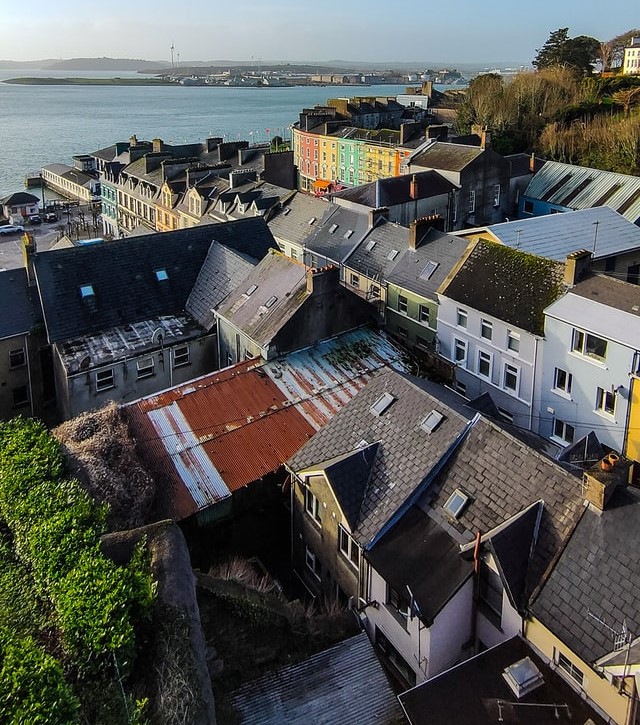Local authorities are offering up to €50k for you to renovate a vacant property to live in.
In this article we cover:
- How much you can get from the new grant
- How to check if you qualify
- Types of work elegible
- Inspections and clawback clauses
- How the grant works
In a bid to tackle dereliction and encourage people to move back to rural towns and villages, the ROI government is now offering renovators up to €50,000 to refurbish vacant buildings.
Croí Cónaithe (Towns) Fund Vacant Property Refurbishment Grant offers up to €30,000 for the refurbishment of a vacant property, or up to €50,000 if the property is derelict. Both amounts are inclusive of VAT and the grant went live on July 14, 2022.
UPDATE November 2022: The scheme is now open to all of ROI, more details here
Eligibility
The grant applies to the more than 500 towns and villages defined by Central Statistics Office Census mapping. That means the city and suburb boundaries of Dublin, Cork, Limerick, Galway and Waterford, are currently not eligible. But these areas may be included later down the line.
Some smaller villages, which may not be defined for the purposes of Census mapping as villages, but with sufficient provision of services and amenities, also qualify.
Conditions include:
- The property must be vacant for two years or more and built before 1993.
- The local authority will assess utility bills or other proof you can supply to confirm vacancy.
- The property should be within a town or village boundary or walkable to town/village centre along public footpaths primarily.
- The property can be of any type, but if not residential planning permission must be in place to convert to a residential property.
- You need to own the property or be in active negotiations to buy it (the local authority will then allocate the grant in principle, to be acted upon only when you fully own the property).
- Anyone can apply as long as they are selling their previous property (if they had one) to move into a town or village setting*.
- Upon completion, the house has to be occupied as a main residence by the person availing of the grant (not open to holiday homes or buy to let).
- To qualify for the €20,000 top up, the property needs to be on the Derelict Sites Register or you must submit an independent report prepared by an appropriately qualified professional (such as an engineer) confirming that the property is structurally unsound and dangerous.
*You need to be a first time buyer, a fresh start applicant (divorced/separated or insolvent/bankrupt and with no legal interest in previous home), have particular needs (people with reduced physical ability) who are selling their previous home, or be moving from your current home which you have to be selling or have sold and now want to live in a town or village setting.
Type of work eligible
As the government body administering the grant, your local authority will assess if the works you propose are eligible.
Work covered by the grant is wide ranging, on both the existing property and for an extension that is part of the refurbishment. It also includes professional services, e.g. architect fees.
The grant will cover site and structural work, from the foundations to the roof including walls, chimneys, roof and all related work from gutters to flashings, doors, widows and sills, and damp proofing.
Internal work is also eligible, including stairs, internal walls, doors, and wall and floor finishes. Plus building services, i.e. heating and hot water, ventilation, electrical work, etc.
Inspection and clawback
When you’re ready to move in, the local authority will inspect the property. If the works have been completed as specified in the application, the grant is signed off on and paid.
There is a clawback of the grant if you sell the house within 10 years of receiving it. The full amount is to be repaid if selling within five years, 75 per cent between five and 10.
To apply and for further information, contact the Vacant Homes Officer in your local authority. The full FAQ on the grant scheme is available here.










